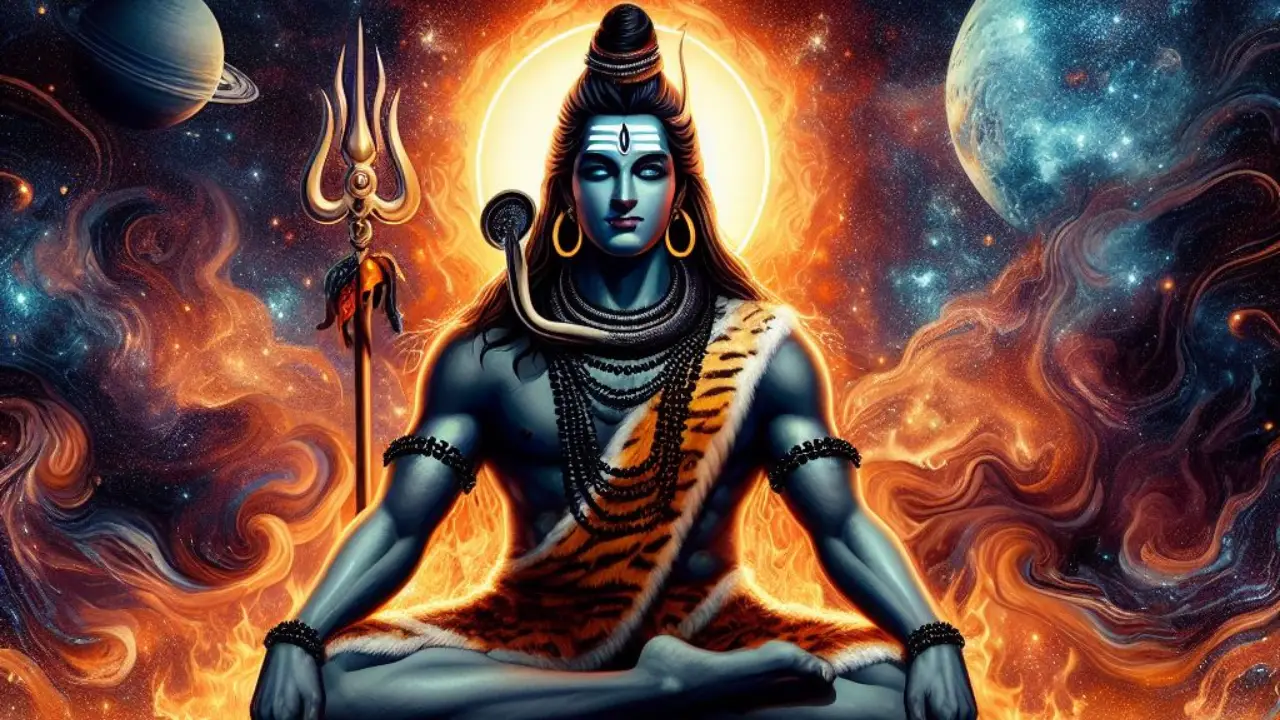Hinduism is a diverse religion with a multitude of gods and goddesses, each with their own unique attributes and qualities. Lord Shiva, also known as Mahadeva or the great god, is one of the most revered and worshipped deities in Hinduism. He is the destroyer in the Hindu trinity of Brahma (the creator), Vishnu (the preserver), and Shiva (the destroyer). Worshiping and embracing Lord Shiva is considered of great importance in Hinduism, and there are many reasons why.
Transformation and Change for Embracing Lord Shiva
Firstly, Lord Shiva is believed to be the god of transformation and change. He represents the cyclical nature of life, death, and rebirth. People say that worshiping him helps individuals accept change in their lives, whether they experience the loss of a loved one, a change in career or lifestyle, or any other significant event. Lord Shiva often holds a third eye, symbolizing his ability to see beyond the material world and into the spiritual realm. This aspect of Shiva is important in helping individuals gain a deeper understanding of themselves and their place in the world.
Austerity and Self-Discipline for Embracing Lord Shiva
Secondly, Lord Shiva is also associated with the concept of austerity and self-discipline. He is often depicted as a yogi, meditating in the mountains or in the forest. This aspect of Shiva is important in helping individuals to develop their own spiritual practice, through meditation, self-discipline, and self-reflection. By worshiping Lord Shiva, individuals can gain inspiration to cultivate their own spiritual practice and connect with the divine.
Destruction
Thirdly, Lord Shiva embodies the power of destruction. In Hinduism, people perceive destruction as a necessary element within the cycle of life. The destruction of old forms facilitates the creation of new forms, and believers consider this process essential for growth and evolution.Worshiping Lord Shiva can help individuals to accept the inevitability of change and to see the positive aspects of destruction.
Arts
Fourthly, Lord Shiva is also associated with the arts. He is often depicted as a musician, dancer, or poet. This aspect of Shiva is important in helping individuals to connect with their own creativity and to express themselves through the arts. By worshiping Lord Shiva, individuals can gain inspiration to explore their own creative potential and to express themselves in new and exciting ways.
Dharma for Embracing Lord Shiva
Fifthly, Lord Shiva also associates with the concept of dharma, or right action. He often depicts himself as a just and wise ruler, upholding the laws of the universe and ensuring that justice serves. This aspect of Shiva is important in helping individuals to understand the importance of living a life of integrity and honor, and of doing what is right, even in difficult circumstances.
Moksha
Finally, Lord Shiva also associates with the concept of liberation or moksha. He often portrays as the ultimate goal of spiritual practice, representing the attainment of enlightenment and freedom from the cycle of birth and death. By worshiping Lord Shiva, individuals can gain inspiration to pursue their own spiritual path and to seek liberation from the cycle of suffering.
Lord Shiva possesses many different symbols and rituals that hold significance in Hindu worship, in addition to these qualities. For instance, devotees commonly use the lingam, a phallic symbol, to represent and worship Lord Shiva. The Nataraja, or dancing Shiva, is another important symbol that represents the power of transformation and the cyclical nature of life. The seeds of the Rudraksha tree make the Rudraksha beads, which people often use in meditation and spiritual practice due to their association with Lord Shiva.
Worshipping and Embracing Lord Shiva
There are many different ways to worship Lord Shiva, but some common practices include:
Meditation and Prayer:
Many people who worship Lord Shiva engage in meditation and prayer as a way to connect with him. This can involve sitting in quiet contemplation, repeating mantras or prayers, or visualizing Lord Shiva in their mind’s eye.
Fasting:
Fasting is another common practice among devotees of Lord Shiva. Some people may fast on specific days of the week or during certain festivals. While others may fast for longer periods of time as a form of penance or purification.
Offerings and Puja:
Devotees of Lord Shiva often make offerings to him as a way of showing their love and devotion. People can offer flowers, fruits, milk, or other items that please Lord Shiva. They may also perform puja, or worship rituals, in temples or at home altars.
Celebrating Festivals:
Many festivals dedicated to Lord Shiva exist, such as Maha Shivaratri, which people celebrate annually to honor Lord Shiva’s marriage to Goddess Parvati. During these festivals, devotees may participate in special ceremonies, perform rituals, or engage in other forms of worship.
Yoga and Dance:
Some people who worship Lord Shiva incorporate physical practices like yoga or dance into their worship. These practices can help to cultivate a sense of mindfulness and connection with Lord Shiva, as well as promote physical health and well-being.
In conclusion, Hindus consider Lord Shiva an important deity. They believe that worshiping him brings numerous benefits to one’s life. From spiritual growth to material prosperity, devotees seek the blessings of Lord Shiva for various reasons. The practices and rituals associated with embracing Lord Shiva are diverse. However, but they all serve the purpose of invoking his presence and receiving his grace. Whether through meditation, prayer, or visiting temples, devotees of Lord Shiva find solace and strength in their devotion. By embracing Lord Shiva and connecting with his divine energy, they strive to live a life of purpose, compassion, and wisdom. Therefore, worshiping Lord Shiva is not just a religious duty but a spiritual journey that can transform one’s life.





